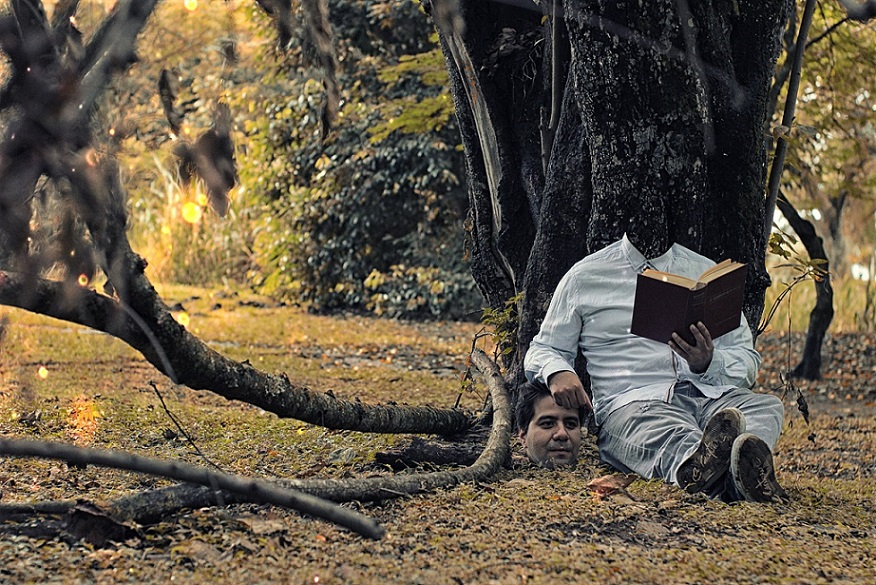What did I do to deserve so much time inside? It was 1961, in the poet Darío Samper’s library, when I first came to know Miguel Hernández.
 Armando Orozco Tovar
Armando Orozco Tovar
The Spanish poet, was sitting in a corduroy suit, head shaved head, and with works of poetry and prose lining the shelves, where Darío had put them, alongside the greats of the Spanish language: Garcilaso, Lope, Góngora, Quevedo, Juan Ramón Jiménez, García Lorca, Vallejo, Huidobro and Pablo Neruda.
It was in this library that Darío Samper, lawyer and poet from Guateque (Boyacá) said to me: “Take this and read this poet I am sure you will like.” He very kindly handed me a book by the poet from Orihuela, born in 1910. The same poet who one day in 1942, aged 32, having had enough of prison, tuberculosis, loneliness, and separation from his wife Josefina and his son, just before he left this world in his sleep, he wrote on his cell wall:
“Goodbye, brothers, comrades, friends: let me take my leave of the sun and the fields”.
To this day, I haven’t stopped reading that essential 20th Century verse of, not since the day Darío brought it to my attention. The same goes for those poems set to music by Joan Manuel Serrat, I simply can’t stop listening to them. I think Francisco Franco, the Spanish dictator – whom Pablo Neruda referred to as “Cursed one, may only humans pursue you.”
 When with all his might the Catalan poet brought Miguel to life: a joker who had been inspired by his teenage years by Spanish classics of the 17th century, discovered in the parish church’s library thanks to his friend Sijé Ramon, and one of his biographers Adolfo Salazar says that his face resembled, a potato fresh from the earth.
When with all his might the Catalan poet brought Miguel to life: a joker who had been inspired by his teenage years by Spanish classics of the 17th century, discovered in the parish church’s library thanks to his friend Sijé Ramon, and one of his biographers Adolfo Salazar says that his face resembled, a potato fresh from the earth.
A self-taught poet, Miguel Hernández was also a shepherd to his father’s herd of goats – the very father who one day, Elvio Romero recounts, hit his son so hard across the head that the poet never recovered. It was this anecdote that led me to write the poem “Orihuela” in Havana, dedicated to Miguel Hernández:
All day I’ve had Miguel in my head,
which is about to burst
like his, long ago, on his way to Orihuela (…)
Salazar goes on to say that the pastoral poet was “restless, happy and explosive, immersed in nostalgia and silence. This was how he arrived in Madrid, not even a penny in his pocket.” His first encounter in the Spanish capital was with Federico García Lorca, author of “The gypsy ballads” (Romancero gitano).
 The Andalusian poet read Miguel’s 1933 creation “Lunar Expert” (Perito en Luna), considered to be his début work, and on finding out that it had yet to receive a single review, stated: “It doesn’t deserve silence you idiots. No, it deserves attention, encouragement and love from the greats. That you have and will have, because poetry lives in your veins and sensibility in your resplendent and afflicted heart”.
The Andalusian poet read Miguel’s 1933 creation “Lunar Expert” (Perito en Luna), considered to be his début work, and on finding out that it had yet to receive a single review, stated: “It doesn’t deserve silence you idiots. No, it deserves attention, encouragement and love from the greats. That you have and will have, because poetry lives in your veins and sensibility in your resplendent and afflicted heart”.
In July 1936 the Spanish Civil War began, with leftist forces rallying together to protect the democratically elected Republic. Miguel immediately became a soldier to the cause, fighting against the assault from Franco’s African troops supported by international fascist groups.
The poet ceased to be “shepherd of the abyss” and became a working militant, to wear the uniform of the militia of the Fifth Regiment, organised by the Spanish Communist Party, in the courtyard of a convent, immediately after the outbreak of the Civil War .
The Cuban journalist and writer Pablo de la Torriente Brau appointed him as the Head of the Department of Culture, during which time the poet wrote:
“Sitting upon the dead / fallen silent these two months, / I kiss empty shoes / and angry I make a fist / with the heart’s hand / and the soul that drives it.”
 The first to show Miguel Hernández support was Juan Ramón Jiménez, publishing the cripplingly mournful “Elegía a Ramón Sijé” (Elegy to Ramón Sijé) in his Journal of the West (Revista de Occidente) as well as six other poems from his collection “Unceasing Lightning” (El rayo que no cesa). Pablo Neruda, Chilean diplomat in Spain was shocked by the conditions in which the Spaniard was living, he wrote in his memoirs:
The first to show Miguel Hernández support was Juan Ramón Jiménez, publishing the cripplingly mournful “Elegía a Ramón Sijé” (Elegy to Ramón Sijé) in his Journal of the West (Revista de Occidente) as well as six other poems from his collection “Unceasing Lightning” (El rayo que no cesa). Pablo Neruda, Chilean diplomat in Spain was shocked by the conditions in which the Spaniard was living, he wrote in his memoirs:
“I met him fresh from his hometown of Orihuela; the goat herder who arrived here still wearing his farm hand’s cord trousers and canvas shoes. I published his verses in my Journal ‘Green Horse’ (Caballo Verde); I was taken in by the insight and energy of his enriching poetry…and given that he was hungry and jobless I prompted, Miguel at last you have a path. The Viscount is on the lookout. You could go far. Tell me what kind of role you want to be appointed to. Miguel paused, the premature wrinkles lining his face becoming shrouded by apprehension, and replied: “Couldn’t the Viscount just entrust me with a herd of goats somewhere near Madrid?”
(Translated by Tara Balfour – Email: tarabalfour@gmail.com) – Photos: Pixabay












.jpg)












